| Another Circus magazine, this time from January 1972. This is a very
intersting Circus issue, because besides this very intrigueing article, there is
also some great Teaser and the Firecat advertisements. About every other page or so
inside this Circus Magazine issue, on the bottom right hand corner of the pages little
3" x 3# teaser drawings appeared. They were to represent the soon to be
released Teaser and the Firecat LP. But, there were no
explaination as to what they were other than they looked like some elusive drawings. Be
sure to check out these great little drawings below the article!
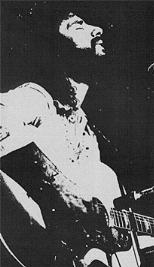
~Cat Stevens~
- Onstage and Backstage
- In London and America
- Which Cat Stevens is the more
honest performer? Last year's nervous young boy, or this year's polished superstar?
by Janis Schacht
Steve?’’
he laughed, "My name’s not Steve, my name’s Cat." And that’s the
truth. A year ago Cat Stevens might have been thrilled that you called him Steve, but now
Steven Georgiou has been permanently converted to Cat Stevens. Personally and
professionally the image has fused, and he is 100% pop star.
Onstage at the
London Coliseum, in front of a screaming audience Cat Stevens was personable, confident
and totally at ease with himself and his music . . . a year ago, in New
York, when he first walked on to the stage of the Fillmore East, virtually unknown, he had
been a nervous young boy. The polished performer had not yet emerged.
Which version of Cat
Stevens is better is purely a matter of opinion.
When "Peace
Train" had it’s first public airing at the Fillmore it was fresh and
enthusiastic. Cat liked it so well that he sang it twice. Now an established chart
success, it hammers the message across and receives the response it always
deserved—but the spontaneity is gone.
Which was the more
honest performance? Has success spoiled Steven Georgiou, late of 245. Shaftesbury Avenue
and the Moulin Rouge Restaurant? Which version was more fun to watch?
The adulation in
America is heavier than it is in England . . . at the British
Coliseum, when the girl shrieked out "Steve!," our Mr. Stevens answered with,
"Hello Heather," which brought another shriek of delight. In New York or Los
Angeles, was Stevens going to recognize an isolated voice in the crowd? It’s very
doubtful. The crowd here is less predictable, it grows and shifts with each record. And
there’s not much chance that any sweet young thing was going to lose her cool long
enough to scream out "Cat," let alone "Steve."
A Cat Stevens
concert at an Eastern University proved to be an interesting experience. Stevens always
arrives hours ahead of time to rehearse. Since he is not the world’s greatest
guitarist, he takes great pains to be as good as he can possibly be. In his dressing room,
he is surrounded by the people who make the tour click. Manager, booking agents, second
guitarist Alun Davies and bass guitarist Larry Steele. The concert was due to go on at
eight, but when eight o’clock arrived, about twenty or thirty people were scattered
through the first few rows listening to a private concert, while outside 3,000 waited in
the cold wondering what the hell was going on. The few people who were inside watched with
mixed feelings. The concert was being held up due to a faulty P.A. system. There was a
sadness throughout the crowd because the quality was so poor. But there was joy too,
because the worst sound system cannot kill a Cat Stevens performance.
There was our man
"Steve" (still Steve) and his magic voice and the wildest set of vibrations
possible. But he was already on the verge of becoming the superstar he is now, and there
were some very weird head scenes to be dealt with. People were climbing through windows,
punching up guards, breaking in doors and climbing high above the stage. There was no
security backstage, so it reached the point where there were as many people behind the
curtains as there were out front. That was when the punchups started.
So, Stevens was on
tour in America and the crowds were loving it, the manager was loving it, and even the
booking agents were singing along. Backstage in America, you might have found yourself
standing next to an elfish, frail Stevens in shades and a silk jean outfit, looking tired
and out-of-it. Backstage in London is another scene entirely; "our hero" is
nowhere to be found. There’s a guard at the doors who’s been given the order to
let in no one that isn’t on the guest list. At one point the guard threatens to throw
out Alun Davies because he let in some people from Island Records. Interesting names get
tossed about. And familiar faces, such as Ian Anderson of Jethro Tull show up. DJ Jeff
Dexter arrives with two young children who are throwbacks to flower-power . . . they are flower children in the true sense of the word and their innocence even
softens the hardest guard.
In America people
climbed into dressing room windows, through basements, peered into the men’s room and
made a general nuisance of themselves. In London the guard announces that he’s never
had to deal with such a rowdy bunch, and that the people who came to visit Ten Years After
the week before were far more civilized.
All this is an
indication that it’s the "year of the Cat." But despite all the hysteria in
London, you can still stand outside the stage door and hear a free concert through the
drainpipe. This is one thing that never varies . . . Stevens is always in
his dressing room hammering out songs, new, old and unrecognizable. until just before he
goes onstage.
The difference is
this: in England it’s always the press and friends that are getting kicked away from
the stage door or having their complimentary tickets sold if they turn up a second late . . . in America it’s the fans that are trying to make contact with a star they
admire. You’ll very rarely see an English fan waiting outside the stage door.
In London, he
doesn’t sing "I Love My Dog," but someone asks for "The First Cut Is
The Deepest." Now there are no songs from the period before Mona Bone Jakon. In
fact "Katmandu," which opens the English set, is the only song from the
"Mona Bone" period. Everything else is Tea for The Tillerman and Teaser
and The Firecat (A&M Records). One song was even newer. Cat explained that it took
him over a year to write because he wanted to have the words live up to the beauty of the
melody:
"He was the king of trees,
keeper of the leaves
The deep green God of young love-stained memories
We used to read by him many years ago
I loved you, now they’ve come to cut you
down…"
Introducing
"Father and Son," Cat tells the English audience the following story:
"This is
one of my favorite songs. it seems to say everything I want to say and I can’t go on
saying it, cause you can only say it once it has to do with feeling frustrated, and
it’s to do with family and trying to get through to your family as well as trying to
get through to society and school. My biggest hang-up was school. You know, cause I was
never accepted in any way. Whatever I had to say was rubbish, and it was the same for
everybody. Everybody goes through that; and it’s so crazy, cause kids have so much
more sense, and the teachers were out of it (this brings a roar of applause). Really, the
teachers are the kids. There’s a freaky kind of very funky strange people that teach.
They do it for strange reasons . . . they do it because they can’t get to bed with anyone they want. So they take
out their frustrations on these kids. I knew this guy, oh wow, he used to pay a penny to
feel young boys. I mean a penny, I charged two bob." There is an easy openness when
Cat Stevens talks to his English audience. Looking down into an orchestra pit of friends
let in as freebies and an audience full of fans who paid a goodly percentage of their
weekly salary to get in, Cat Stevens feels very secure in London, after one encore the
fragile Cat pleads fatigue and a loving audience lets him offstage—thanking him for
all he’s given. In America the merciless audience cannot see the fatigue and ignores
the voice that inevitably begins to falter from exhaustion. .
Ours is a very delicate Cat that feels more secure in London, but feels it
necessary to give more to the American audience. He always tells his audience: "I
never could have thought it would be as great." It’s true, it was a long, hard
climb. When he returned for his encore, he told the English crowd, "You see, it
doesn’t take much to bring me back, two bob is still cheap." The only thing is . . . it’s really cost
him so much more.
The Teaser and the
Firecat drawings that appeared in this Circus issue as little advertisements. I wonder
though, why they did not include Bitterblue and Ruby Love in with these drawings?
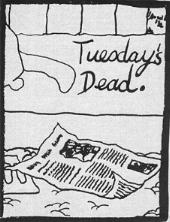 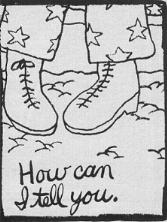 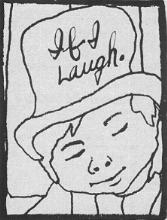 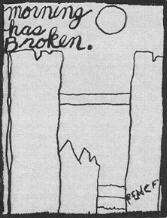 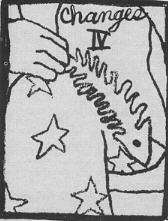 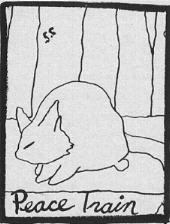 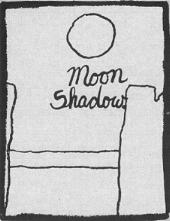 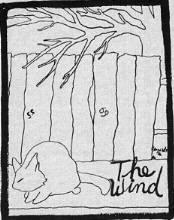 |